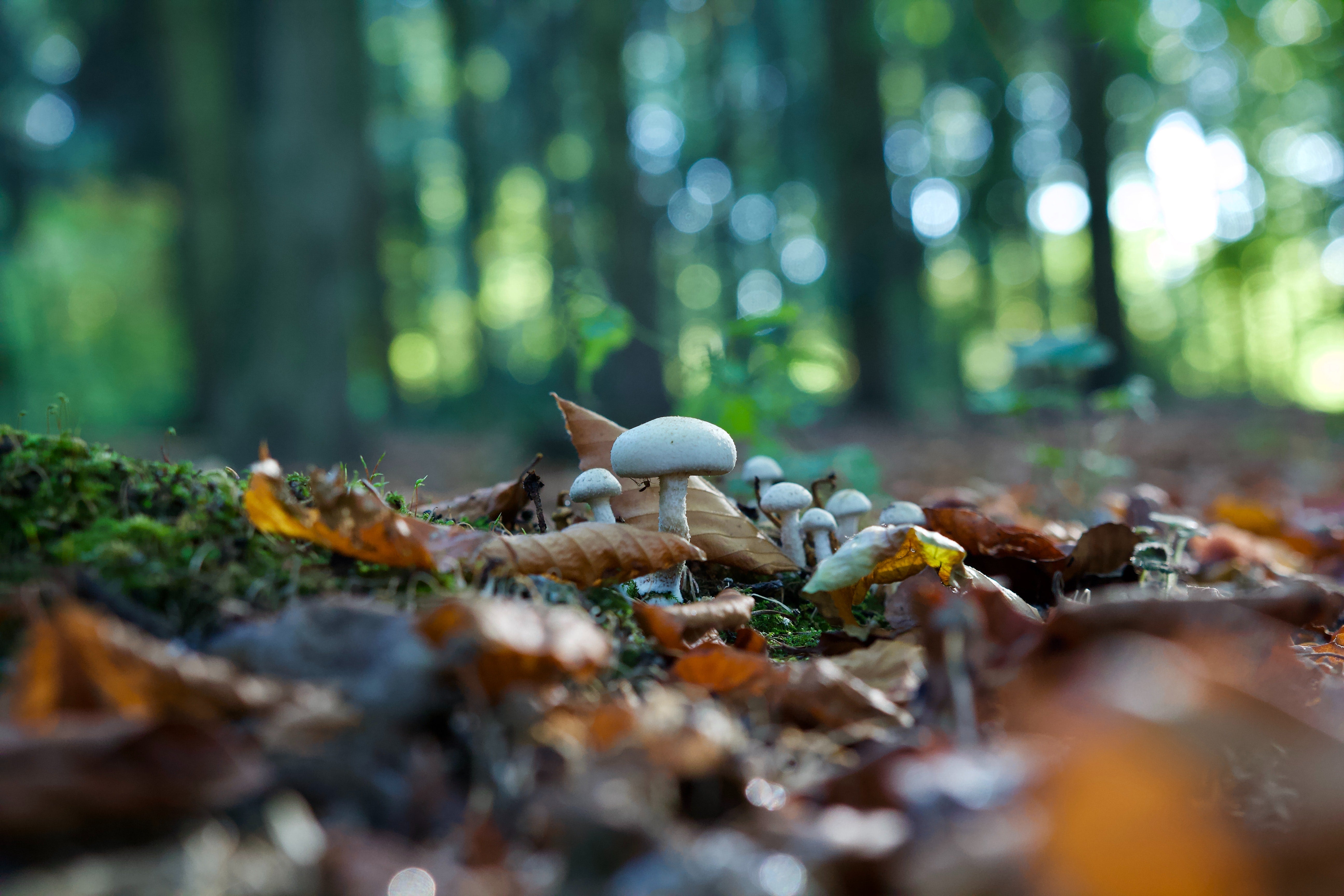
Here’s a phrase that might have sounded strange just a few years ago: want a coffee with Reishi mushrooms in it? Adaptogenic mushrooms have been a key component of traditional Chinese, Korean, and Japanese medicine for thousands of years, but we in the States have been slow to adopt them into our own wellness routines. That’s changed significantly in the last few years, and we couldn’t be prouder.
But since this is such a new frontier for so many of us, it’s natural to have questions. You may be asking: What are adaptogenic mushrooms? How does Chaga and Reishi help me relax? How can Lion’s Mane help with my memory, and how does Cordyceps improve my endurance? You’ve come to the right place, but first we’ll need to back up just a little bit. Let’s start with a simple question with a surprisingly complex answer.
What is a mushroom?
Every mushroom consists of two main parts: the mycelium and the fruiting body. The fruiting body is what we think of when we imagine a mushroom—some of them have stems, round caps, gills. This is how the mushroom reproduces, sending out spores which land and start their own mushroom colonies. The backbone of those colonies is the mycelium. This is an intricate, delicate network of fungal fibers that stretch through the substrate—whatever the mushroom is growing on, which is typically underground. (Want to learn more about substrates? Check out our article here.)
Adaptogenic vs. Culinary Mushrooms
Human beings have long cultivated mushrooms for their delicious flavor and unique texture, and many of us regularly ingest mushrooms as food—think grilled portabellas, sautéed creminis, or enoki in hot pot. Using mushrooms for their medicinal or adaptogenic properties, however, is less common in the west, though that’s changing as we speak.
What is an adaptogenic mushroom?
Adaptogens are chemicals that help the human body respond to a wide range of stress-inducing adverse conditions. At Wunderground, we derive these adaptogens from organic mushrooms like Chaga, Reishi, Cordyceps, and Lion’s Mane (a delicious culinary mushroom in its own right). Again, these mushrooms have been a part of traditional Chinese, Korean, and Japanese medicine for thousands of years, but it’s only fairly recently that scientists have performed peer-reviewed studies to see what these revered ingredients can do. The results are encouraging. Adaptogenic mushrooms have been shown to improve brain function, reduce stress, and even help prevent cancer.
Chaga, for example, supports endurance, healthy digestion, and reduced fatigue. Reishi has long been used to boost the immune system and improve rest, balance, and relaxation. Cordyceps is highly prized for stress-reduction, along with its anti-aging and anti-inflammatory properties. And Lion’s Mane helps improve memory, clarity, and concentration.
Wait, how does a mushroom reduce my stress and improve my memory?
Adaptogenic mushrooms contain chemicals called beta-glucans and triterpenes, which can boost your immune system, help you cope with and reduce stress, sleep better, and improve your concentration and creativity. How these chemicals work is its own amazing journey, which we’ll talk about in depth in our article on extraction and mushroom chemistry.
But before we get to that, we need to talk about how mushrooms grow, and where. You can learn more about that in our article on mushroom substrates.


